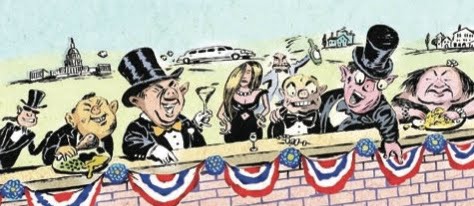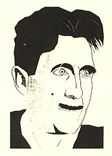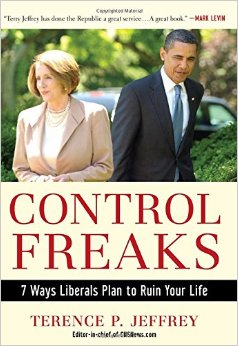Capitalism is the world’s greatest economic success story. It is the most effective way to provide for the needs of people and foster the democratic and moral values of a free society. Yet the worst recession in decades has widely–and understandably–shaken people’s faith in our system. Even before the current crisis, capitalism received a “bad rap” from a culture ambivalent about free markets and wealth creation. This crisis of confidence is preventing a full recognition of how we got into the mess we are in today–and why capitalism continues to be the best route to prosperity.
Breitbart Confronts Paid Union Thugs
The Right Nation 2010 convention has been going on in Chicago. Andrew Breitbart was a featured participant, along with Glenn Beck and others. Obamabots from OFA and paid union thugs were bused in to create the illusion of a grass roots opposition to the conservative gathering. Breitbart, with typical boldness, didn’t just walk past the paid union members who had no idea why they had been ordered to attend. Rather, he confronted them. In the end, they retreated sheepishly.
The Grudge: Barry Soetoro’s Indonesian Expatriate Hell
Where did Barack Obama acquire the self-evident disdain he has for major corporations, especially oil companies, and for the striving classes who have made America prosperous and strong? Many conservatives have noted Barack Obama’s class envy, expressed both in his and his bride’s resentment over their education debts and desire to live large in the White House, and in his intent, expressed to Joe the Plumber, to “spread the wealth around.”
Ayn Rand
Ayn Rand was born in St. Petersburg, Russia, on February 2, 1905. At age six she taught herself to read and two years later discovered her first fictional hero in a French magazine for children, thus capturing the heroic vision which sustained her throughout her life. At the age of nine, she decided to make fiction writing her career. Thoroughly opposed to the mysticism and collectivism of Russian culture, she thought of herself as a European writer, especially after encountering Victor Hugo, the writer she most admired.
Why “Atlas Shrugged” is flying off the bookshelves
According to a Library of Congress survey, Atlas Shrugged, published in 1957, may be second to the Bible as the most influential book read in America. It is required reading in management training at BB&T, the 12th-largest bank in the U.S. and one that resisted taking TARP bailout funds. Since the Obama administration took office, Atlas Shrugged has been making a renaissance with rising sales and library waiting lists, partly because it explains our current economic woes more straightforwardly than most of what we hear from today’s experts.
The Left’s Lust for Black Gangstas
Fox correspondent Erik Rush has just published a book, Negrophilia, with a profound premise. A biracial conservative, Rush decries the Left’s slobbering love affair with blacks. Like necrophilia, liberals’ obsession with black people is a sick and creepy fetish.
America’s Ruling Class — And the Perils of Revolution
As over-leveraged investment houses began to fail in September 2008, the leaders of the Republican and Democratic parties, of major corporations, and opinion leaders stretching from the National Review magazine (and the Wall Street Journal) on the right to the Nation magazine on the left, agreed that spending some $700 billion to buy the investors’ “toxic assets” was the only alternative to the U.S. economy’s “systemic collapse.” In this, President George W. Bush and his would-be Republican successor John McCain agreed with the Democratic candidate, Barack Obama.
Orwell Today
Comparing the world George Orwell described in “1984”
with the world we are living in today, 2001/2/3/4/5/6/7/8/9 2010
How Liberals Want to Control Your Life
Terence P. Jeffrey doesn’t mince words in his new book about the Obama Administration’s goals for remaking America.
“Modern American liberals … would like to see the government exercise more control over our movement, our retirement income, our heathcare, our private property, our speech,” Jeffrey warns.







